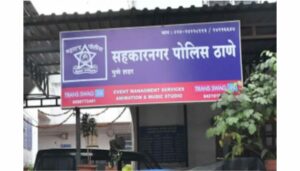Now 20 crores crimes/criminals details available online through CCTNS
New Delhi : In order to facilitate police in States/Union Territories (UTs) with a common platform for filing reports, collecting and sharing information on crimes and criminals at national level, Ministry of Home Affairs (MHA) has implemented Crime and Criminal Tracking Network and Systems (CCTNS). Against the target of covering 14306 police stations, a total of 14874 police stations have been covered in CCTNS including some new police stations added. A total of 20.10 crore records of crime/criminals are available at national level.
35 States/UTs (except Sikkim) have already launched their State Citizen Portals under CCTNS providing citizen centric police services, including online filing of complaints, obtaining status of complaints, obtaining copies of FIRs, viewing details of arrested persons/ wanted criminals, viewing details of missing person/ unidentified dead bodies, viewing details of stolen/ recovered vehicles and other property, download of forms, request for antecedent verification and request for issue of various NOCs from police. A total of 3.61 crore service requests have been received from citizens (till May 2019). Delhi, Rajasthan and Uttar Pradesh have launched e-FIR facility for citizens for property and vehicle theft where accused are not known.
The challenges faced during implementation of CCTNS in various States and UTs include orienting police personnel in States and UTs to adopt Information Technology and CCTNS application; getting adequate technical manpower in State Police Departments; digitization of legacy crime and criminal records; use of multiple languages to record data; and provision of network connectivity for police stations especially in geographically difficult locations.
To address the challenges mentioned above, steps taken by the Government include Role-based training given to a total of 5.58 lakh police personnel leading to increased use of CCTNS; funding for State Project Management Units (SPMU) under the project to help States and UTs monitor and provide technical guidance; sharing of data digitization tools and best practices with States and UTs to expedite the digitization of legacy crime and criminal records; provision of software tools and mechanisms to States and UTs to handle data in different languages; and advisory issued to States and UTs allowing utilization of secured networks in addition to BSNL services for connectivity wherever required.








